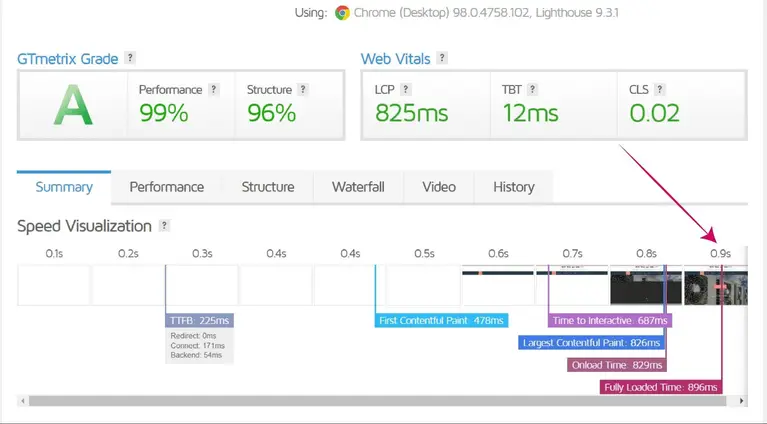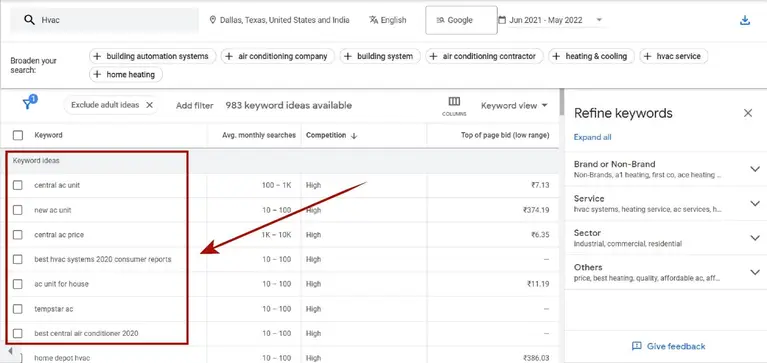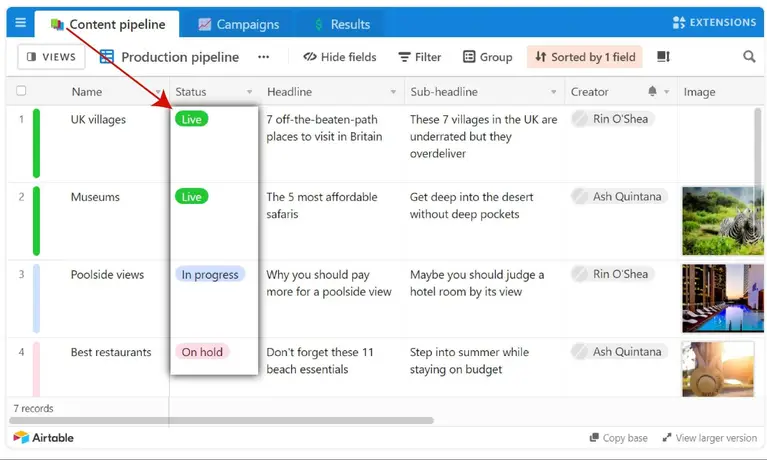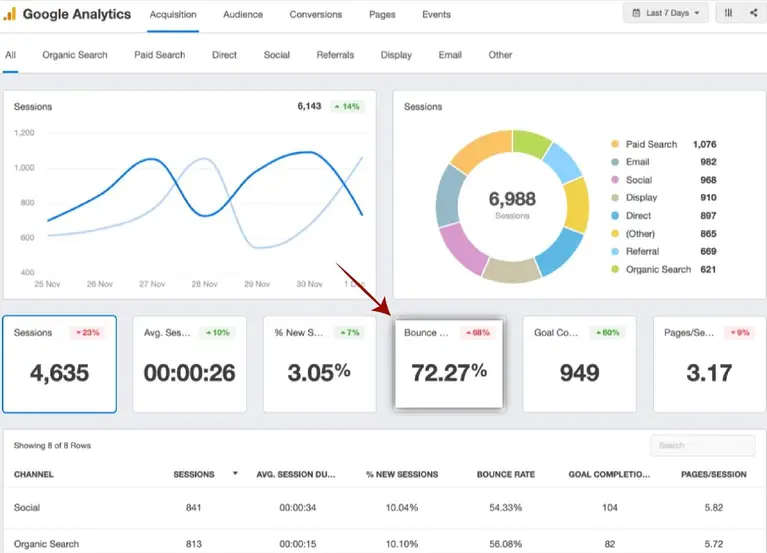
HVAC Local SEO Mistakes That Can Cost You Thousands Make
Intro
HVAC (Heating, Ventilation, and Air Conditioning) companies are competitive. To be the best in your town, you must go beyond just great services.
Your business needs to be visible locally in search engines and other media. Many HVAC companies spend a lot of money on SEO but make common mistakes that prevent them from seeing good results.
11 Biggest Local SEO Mistakes HVAC Companies Make
1. Incomplete Google My Business Profile
To create a solid foundation for your local SEO campaign, start with GMB. Google searches are one of the most popular ways by which people find local businesses.
Create a GMB profile for your HVAC business if you haven't already. The next step is to claim your business on Google by verifying a few details.
Don't stop here. That's a common local SEO mistake HVAC companies make! Once your GMB business account is set up, you will need to spend time adding as many details as possible about your business. The more complete your profile, the higher the customer reach.
Take a look at the below screenshot; an HVAC firm has not added the website, description, services offered, the areas it serves, etc.

Here Are Our Top Tips:
- Ensure that the name, address, and phone are accurate. Add a map as well.
- Select the suitable business category. You can choose up to 5 and select ones that best describe your HVAC business.
- Respond to all customer queries and reviews. Do not buy fake reviews; this could blacklist your site forever.
2. Slow Websites
What do you do when you click a search result and the site takes an eternity to load? You exit it and go back to the search results.
Slow-loading websites are one of the biggest factors that hamper local SEO efforts.
A prospect may quickly turn to a competitor if your website is slow. Your credibility as a company also takes a hit when your online presence is amateur.
The below screenshot shows an HVAC load within 1 sec, which the audience will love to access as they don’t have to wait.

You don't have to be a technical genius to determine what's causing the slow loading.
Let's look at three great tools:
- Google Page Speed Insights: A free tool that audits your site and tells you how long it takes to load and what is slowing it down.
- Yslow: This open-source tool summarizes analytics, improvement suggestions, and more.
- Tiny PNG: Large image files are usually the culprit for slow sites—Use Tiny PNG to compress images on your site and improve speeds.
Read: Tips to Increase Page Loading Speed
3. Ignoring Customer Reviews
A common mistake made by HVAC companies is ignoring online reviews. Reviews customers leave for your HVAC company online significantly impact your local SEO.
A large number of positive reviews are signs of a credible company.
You must strive for two things when it comes to reviews.
Try getting as many customers as possible to review your business on Google. Next, showcase positive reviews on your sites, newsletters, and social media channels.
Follow Our Tips To Harness The Power Of Online Reviews:
- Never ignore reviews. You may not always get shining reviews. Whether good or bad, make sure you respond to each review to thank them or find out if you can remedy a situation.
Responding to reviews makes the audience aware that you value customer experiences and sentiments.

- Encourage customers to leave reviews. Send them the Google link to your review page through emails, SMS, and QR codes.
4. Dormant Social Media Presence
People are using social media more and more to research HVAC businesses. Facebook and Instagram pages tell customers all they need to know.
Details like timings, addresses, pictures, and videos are all shared on these channels. Hence, keeping your social media pages active and engaging is prudent.
An inactive HVAC company's social media page can send the wrong signal. A company that actively posts content and answers queries is receptive and trustworthy.
For example, the screenshot below shows an HVAC firm’s social profile that provides regular content to the audience with crucial information like services offered and contact details.

Here Are Some Ways To Amplify Your Leads Through Social Media:
- Many customers send direct queries to HVAC companies on social media. The quicker you respond, the more chances you gain their business.
- Post real pictures and videos of your services at client locations. It instills trust, and people can check if your services suit their needs.
- Share engaging content and special offers to stand out from your competitors and get more traffic to your site.
5. Poor Keyword Research
Keywords form the backbone of any SEO effort. These are the terms or phrases people use while searching for HVAC services. Many HVAC companies don't focus on keywords in their local SEO campaigns.
HVAC companies target generic keywords like "AC" or "Heating". These get more competition and are too common.
Instead, it would help if you used specific keywords or phrases such as "AC repairs in Atlanta" to set the context for user searches. Doing effective research can make a big impact on your local SEO ranks.
Many Tools Online Can Help You Do Keyword Research. Our Top Picks Are:
- Google Keyword Planner: A free tool from Google that helps you research top keywords, search volume, competition, and many more insights, as shown in the below screenshot.

- Moz: Search a vast keyword database to explore the best ones that suit your HVAC business. The basic keyword explorer is free to use.
- SEMRush: A suite of 6 keyword research tools that puts you ahead of the local SEO game.
6. Not Performing Competitor Research
Keeping a close eye on what your competitors are doing is one of the oldest tricks in the book. It keeps you sharp in your SEO strategies and your marketing tactics. Most often, HVAC companies ignore this aspect.
They run local SEO campaigns without understanding what the playing field in their area looks like.
Focused competitor research is crucial for local SEO growth in the HVAC industry. It can tell you where you stand in the local rankings. Most importantly, it can reveal strategy gaps, slowing your growth.
When Doing Competitor Research, Focus On These Items:
- Find a list of your top competitors in the area, as shown in the below screenshot. Use competitor keyword research tools such as SEMRush to see which keywords they target.
- Analyze their quality of content, top-performing pages, and social media posts. Doing you will reveal insights on where you lack or, in some cases, your strategy is more robust.

Read: Tips to Do Competitor Analysis in SEO
7. Poor or Ineffective Content
Content is king. Quality content on your HVAC website or social pages drives more visitor traffic than any local SEO strategy.
HVAC companies must plan a robust content strategy to fully harness local SEO's power for their business.
It is not just essential to have quality content but also to post content often to your website. Doing so generates traffic and gains your business a loyal following.
There are many ways to approach content strategy for Local SEO.
A Few Proven Methods Include:
- Create a content calendar. Post original and quality articles at least 2-3 times a month to keep up audience engagement. Create your template or use this free template by Airtable.

- Post content relevant to HVAC that people find helpful. For example, "10 things to check before buying an AC".
- Use HVAC-specific keywords naturally within your content to drive up your SEO scores.
- Post articles about local events such as festivals or sports events to get more audience on your site.
8. Poor or Non-existent Backlinks
Links from sites with good online standing with Google to yours are great for local SEO.
These backlinks are seen as a sign of a healthy business. The traffic on your site grows naturally when it has a good backlink profile.
You must strive to build backlinks organically. You can do this in many ways. Remember that it's a long-term effort and takes time to build a great backlink profile.
Ensure that dofollow and nofollow links are in the right mix, as shown in the below screenshot. Here the site’s most links are nofollow.

There Are A Few Things You Can Do To Get Started:
- Create high-quality, relevant long-form HVAC content for your site. Other sites of authority will start linking it from their sites. It is also great for social media visibility.
- Do not buy backlinks from online firms. They are unethical and hurt your SEO efforts.
- Link to quality websites in your domain from your site. It will encourage the other site to link back to yours as a goodwill gesture.
9. Unoptimized Site for Mobile
More people are searching for HVAC solutions on mobile devices than ever before. It will be a mistake if you don't optimize your site for mobile. Your site should look good and be easy to navigate on small screens.
A site made for desktops does not automatically fit mobile screens.
A site not designed for mobile will put off customers and directly impacts your SEO efforts.
Ensure that you work closely with your development team to make it mobile-friendly.
You can use various tools to check if your site is mobile-ready.
We Round Up Our Favorites Here:
- Google Mobile-Friendly Test: Start with this free tool from Google. Enter your site URL and get insights on your site's mobile readiness. Identify gaps and technical issues you need to address.
- Page Speed Insights: Another one from Google. Enter your web URL to get insights about what's slowing it down. Identify gaps to increase compatibility and load speed on Mobile.
Take a look at the below screenshot of how page speed shows whether or not a website is optimized for mobile.

10. Ignoring Local Directories
People look up local online directories along with Google. It gives them more options and helps them compare and find the best HVAC companies. The directories also rank well on top of SERPs, as shown in the image.

Companies make a local SEO mistake only to set up a Google profile and not bother about other directories.
To get ahead in local SEO, list your HVAC business on Yelp and local online yellow pages.
Adding your listing in more than one place casts a broader net for people to find your business online.
Let's Look At A Few Ways To Do This:
- Identify reputable directories online. A few popular ones include Yelp, Foursquare, and Yahoo! local. Create accounts in each and share your listing. Ensure that the Name, Address, and contact details are consistent across all these listings.
- Make sure that you keep your listing updated. Optimize it with images and new address or phone details without fail.
11. Not Using Analytics for Growth
Keeping tabs on your Local SEO performance is a full-time process. A common mistake HVAC companies make is not doing this often.
Most companies start by measuring a few metrics but fizzle out a few weeks later. Not keeping track of your core metrics and plugging gaps is almost as bad as not doing local SEO.
When you start a local SEO campaign, make a list of what the outcome should be and how often you want to measure it. Doing so will guide your SEO efforts better.
Some local SEO metrics carry more weight than others for HVAC companies. Let's look at them:
- Bounce Rate: This measures how long a customer stays on a web page before exiting. The tools like Google Analytics, SEMrush, and others provide the overall bounce rate of a site and each web page. It tells you if the content on the page needs improvement.

- Organic Traffic: Measure the increase in visitor traffic a few weeks after your local SEO campaign.
Other metrics you can consider are customer reviews and sales numbers.
Key Takeaways
- Keep an eye on the local market. See the tactics your competition is using for local SEO. Don't imitate them but instead outdo them with better content and strategy.
- Optimize your website to load fast. Make sure to test it for mobile-friendliness.
- Work on organic growth. Don't fall for unethical practices like buying reviews or backlinks.
- Be receptive to customer reviews and feedback. Don't ignore poor reviews. Identify gaps in products and services and fix them soon.
- Invest in a long-term content strategy. Put out quality articles and blogs often on your site and social media handles.
- Measure your SEO metrics every few weeks and work on the gaps.
ABOUT THE AUTHOR:
Brice Decker

Brice has been handling marketing projects for more than 12 years and he is providing consulting services on SEO, Social Media and PPC. He has a huge expertise in working at large corporations including Accenture Interactive & PwC Digital Services.
ABOUT THE AUTHOR:
Brice Decker

Brice has been handling marketing projects for more than 12 years and he is providing consulting services on SEO, Social Media and PPC. He has a huge expertise in working at large corporations including Accenture Interactive & PwC Digital Services.
Related Post
How to Rebrand Your Business Without Losing SEO?